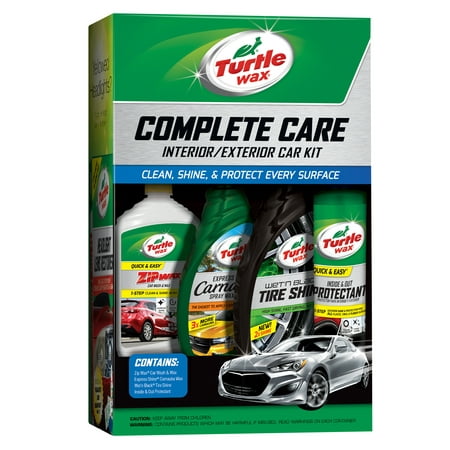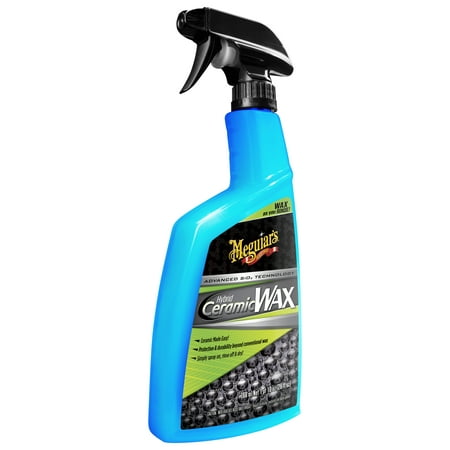Turtle Wax 50785 Interior and Exterior Complete Car Care Kit
Turtle Wax’s automobile care kit consists of 4 objects to clean, shine and shield your car. Zip Wax Wash and Wax gently eliminates dust from your paint, glass, tires and wheels for a niche-free finish. The components is blended with carnauba wax to add shine and protection even as washing. Express Shine Spray Wax is formulated to provide a full coat of wax with out tough buffing. Cover the complete automobile in much less than 15 mins for a reflect-like shine and long-lasting protection. Wet ‘N Black Tire Shine makes your tires appear like new. The fast-drying formulation provides a moist-searching shine and enables protects tires from destiny fading. Super Protectant shines and protects the plastic and vinyl internal your car. The non-greasy formula renews your indoors to like-new and protects in opposition to UV rays.








Turtle Wax 50785 Interior and Exterior Complete Car Care Kit Product Features:Zip Wax Wash and Wax gently gets rid of dust out of your paint, glass, tires and wheels for a gap-free end. The system is mixed with carnauba wax to feature shine and protection at the same time as washing. Express Shine Spray Wax is formulated to offer a complete coat of wax without tough buffing. Cover the entire automobile in less than 15 minutes for a replicate-like shine and long-lasting safety. Wet ‘N Black Tire Shine makes your tires look like new. The fast-drying formulation adds a wet-looking shine and allows protects tires from future fading. Super Protectant shines and protects the plastic and vinyl inside your car. The non-greasy formula renews your interior to love-new and protects in opposition to UV rays.





Reviews
There are no reviews yet.